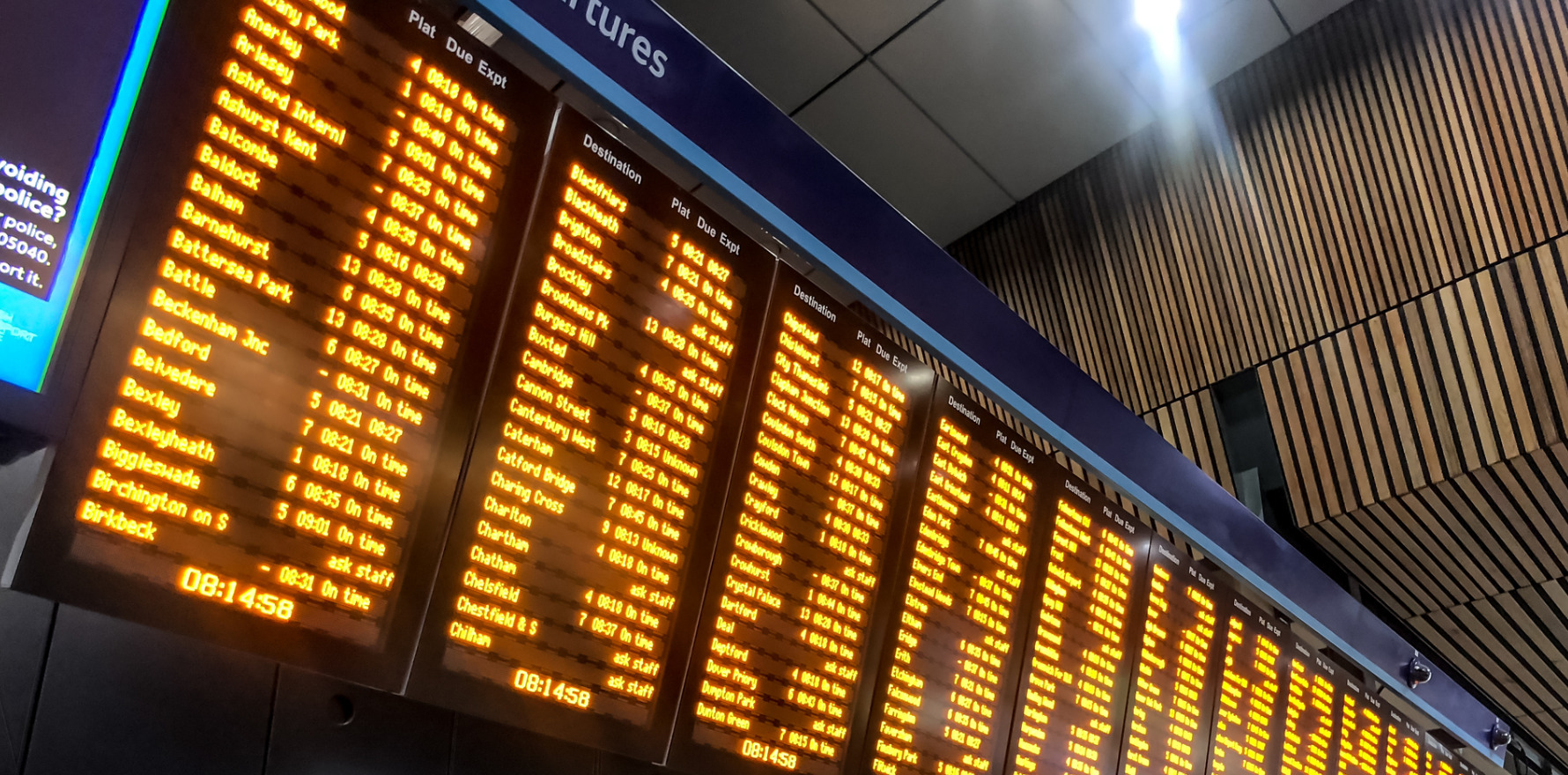If GPs don’t design our own journey, we are going to be passengers on a train to a destination we had no hand in choosing.
General practice as we have known it for decades is in trouble. And, it’s not just in Australia.
There have been increasingly strident messages from all directions about the dire state of general practice in Australia – projections for deficits in the range of 10,000 FTE, dropping percentages of medical graduates wanting to take up the specialty, large numbers of older GPs choosing to down-scale their contact hours, or retire altogether.
This is not a unique Australian phenomenon. There’s a primary care workforce crisis worldwide (here and here). The standard solutions of training more, importing more and demanding ever more of those in practice are simply not working, and have no prospect of solving the current situation.
The “GP shortage” has been building for over a decade – likely longer. It’s driven by many factors, among them funding and practice sustainability, complexity of the work that has outpaced funding reform, and a net (adjusted for population growth) deficit as fewer train, fewer immigrate, and more leave.
At a practical level, as a GP in emergency, I have all but given up on the assumption that my colleague GPs in private practice will be able to seamlessly step in with follow-up care. They are buckling under workload, are booked out weeks in advance (at least in my immediate area, which is MM3).
Parents are bringing their children to the ED to get core primary care. When I ask about a follow-up with the GP in a few days, the usual response is “I have an appointment for two weeks’ time, which I made this morning – that is why I am here with my baby who is vomiting/wheezing/crying/coughing/has a rash”. Sometimes this response is accompanied by tears of exhaustion, frustration and guilt.
I very rarely see an ED patient who is within scope of GP practice who is unaware of this – they just can’t get care for some reason. And this is only going to get worse unless we start to embrace some painful change.
Change 1: scope of practice
Much is being discussed about expansion of scope of practice of pharmacists and nurses – some of which I fully support, some of which may yet prove to be dangerous and stupid.
However, there are not infinite numbers of pharmacists and nurse practitioners sitting doing nothing, waiting to take over the workload. Furthermore, there has been very little talk about getting the GP workforce to top of scope, and this is an urgent need.
The national medical workforce strategy alludes to some key elements of this that are needed. However, despite my previously documented joy in the work of general practice, one of my biggest frustrations in GP was the bottom of scope work. Stupid certificates that served no medical purpose such as daycare clearances, Centrelink certificates that would be ignored anyway, applications for schools to give accommodation to children with disabilities, medicalisation of vaccinations or dressings so that items were actually billable to Medicare, endless referral wars with public hospitals seemingly arbitrarily refusing to help – I am sure colleagues could add more and more to this list.
(Side note – since I started working in ED, I have not had a single OPD clinic referral refused – food for thought.)
Overall, very few people understand the complexity and impact of general practice except those who work in it – but it’s important that we don’t become so protective of our space that we don’t admit when it’s time to give something up in the interests of sanity and also for the sake of patients getting better care.
As with most things, there may be a trade-off between timeliness of care and historical models for providing that care.
If we can find ways to eliminate low-value work from the GP workload, it would be valuable and safe from a patient care perspective.
But it seems that other healthcare professionals don’t want this busy work, or organisations won’t accept certificates and the like from pharmacists and nurses.
In sum, general practice has an opportunity to move away from saying what other professions should not do (seen as turf wars and protectionism) and start talking about the stuff that we know we don’t need to do.
Change 2: integrated models and real teamwork
Many of the arguments against expanded scope for other health practitioners lie around the issue of fragmentation – that the GP won’t know about what’s happening, and decisions may be made by others who don’t have access to the full scope of the GP practice knowledge.
This will certainly be a factor if GPs don’t come to the table and work on integrating with a broader primary care community. I suspect many are willing, if the funding models allow for it.
It isn’t necessary for a patient to see a GP every time they attend a practice. That convention has arisen for several reasons – the fact that general practice used to only be staffed by doctors, and that the funding model didn’t pay unless the patient saw a doctor.
We need a funding model that allowed for care within an actual team, not the (sorry) fake teams that get built around the bureaucratic requirements for Team Care Arrangements. Teams that get to know one another’s strengths and capabilities, learn from one another, and which could have meaningful conversations with and about patients, and work together to deliver what is needed.
The proof of concept for the model already exists in Aboriginal medical services – and it would behove us to consider how we might get there for other high-complexity populations.
Related
GP advocates, myself included, have also placed a premium on the value of opportunistic consultations and interventions, building a relationship that stands the test of difficult times. This is why we hate the diminishing of “just a repeat script” as something that could be done by a trained monkey.
Continuity of care has definitely been linked to better outcomes but there are caveats – the quality of the practitioner is demonstrated to be a fairly important. In an environment where access to specialists is increasingly difficult, patients who see the same GP 100% of the time are faced with the full force of that individual GP’s strengths and weaknesses, and they may not even know it.
A team environment buffers our shortcomings, provides a barometer of practice, and should, if well managed, get better outcomes for patients.
What I do know is that younger doctors are being trained in teams. They are trained to rely on the expertise of a broad range of colleagues, and ideally to learn from them.
The current model of general practice removes them from that collegiate environment and asks them to be alone in a room with patients for most of every day, and to suffer a financial penalty in opportunity costs if they take the time to properly collaborate with other colleagues. We show them the world, and then tell them they can’t have it.
Change 3: reconsider the dominance of fee-for-service
“Strengthening Medicare” has been met with understandable cynicism by a GP population accustomed to governments speaking from both sides of their mouths.
At the same time, advocacy and leadership in general practice is largely in the hands of senior practitioners, often practice owners, who are also beholden to a membership that has learned through repeated battering to be very threat-sensitive.
Unlike other specialties, GPs don’t have the option of salaried jobs in state-funded health services. And calls for salaried positions to replace Medicare have been resisted by generations of GP advocates.
I sometimes wonder if we would get different opinions if we assembled a panel of “35 under 35” to tell us what the future should look like.
Maybe the current single employer models for GP registrars where they retain benefits such as sick leave, maternity leave and annual leave, might start to grow a generation who are not willing to lose those benefits just because they have Fellowed.
A pathway to achieve this for Fellows is, in my view, likely to follow, because something that keeps benefits for only four years is not going to address the issues that young doctors describe as deterring them from general practice as a career.
Change 4: reconsider the wisdom of the “business” of healthcare
I lived for almost eight years in the US and know what a system dominated by profit centres looks and feels like. We are perilously close to stepping over that precipice.
GPs can and do operate very profitable business models, but many of us are uncomfortable with the mindset of extracting maximal profits from the taxpayer or from vulnerable populations. We should not have to choose between ethical billing practices and reasonable remuneration.
Australia has moved so far from the original intent of Medicare that I believe we no longer meet the fundamentals of the UN’s Sustainable Development Goal 3 – “Good health for all”.
Universal health coverage is supposed to protect people from the consequences of the misfortune of poor health. We have lost that in Australia. Until we have a system that can guarantee (not relying on the largesse of private businesses – ie, GPs) access to adequate primary, secondary and tertiary care for all those who need it, we are not living up to the concepts of SDG 3 or universal health coverage.
This is at least in part (but not completely) because the entire primary care system is built on private (for profit) businesses, who are quite justly saying that they can no longer serve as the entity that subsidises the funding failures that drive money into hospitals and away from the most impactful sector of the healthcare system.
In closing
There are some great things about the Australian healthcare system, but access is increasingly not one of them.
There is a terrible misalignment between need and access. In spite of data clearly showing that rural populations have worse health, their access to care is worse.
This fate awaits even urban populations if we don’t step up and design system reforms that are based on what patients need, rather than what sustains existing businesses and models of care.
The journey is going to be painful, but if we don’t design our own journey, we are going to be passengers on a train to a destination we had no hand in choosing.
Dr Jillann Farmer is a GP and medical administrator. She is former medical director of the United Nations, currently working as a rural emergency department locum, and as CEO of A Better Culture.





